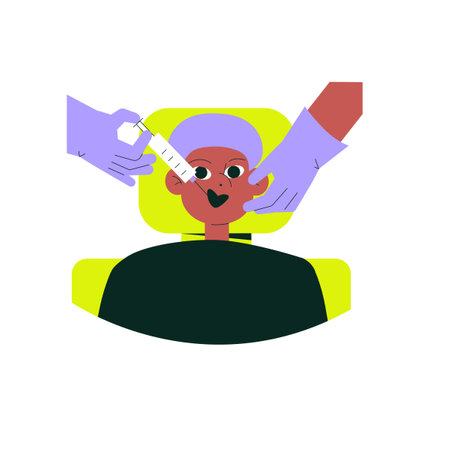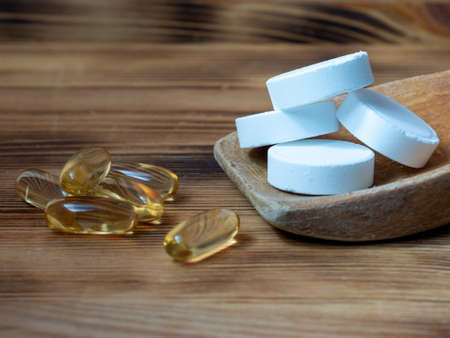1. Understanding Weaning in the UK
Weaning is an exciting and sometimes daunting stage for parents in the UK, as it marks the transition from a milk-only diet to introducing solid foods for babies. According to the NHS, most babies are ready to start weaning at around six months old. This timing is recommended because, by this age, your baby’s digestive system is usually developed enough to handle solid foods and their need for nutrients like vitamins and iron increases. Typical British weaning practices emphasise starting with simple single-ingredient purees or soft finger foods, such as mashed vegetables, fruits, or well-cooked sticks of parsnip and carrot. The NHS also encourages parents to continue offering breastmilk or infant formula alongside solids during this period. For many new parents in the UK, following these trusted guidelines provides reassurance and structure during what can otherwise feel like an overwhelming time.
2. Why Vitamin and Iron Are Important
As a mum who has gone through the weaning journey in the UK, I quickly realised how essential vitamins and iron are for my babys healthy growth and development. These nutrients are more than just numbers on a nutrition label—they form the building blocks for everything from strong bones to a resilient immune system. During those first bites of solid food, babies are rapidly growing, and their bodies need the right nutrients to support all those changes.
The Role of Vitamins in Babys Growth
Vitamins like A, C, and D are crucial during weaning. Vitamin A helps with vision and skin health, vitamin C supports the immune system, and vitamin D is vital for bone development. The NHS even recommends that breastfed babies from birth to one year take daily vitamin supplements containing vitamins A, C, and D unless theyre having more than 500ml of formula a day.
The Importance of Iron
Iron deserves special mention because babies are born with stores that start to run low around six months—the typical age when weaning begins. Iron is necessary for brain development and preventing anaemia. This was one area I found particularly important to pay attention to when planning meals.
Key Benefits of Vitamins and Iron for Weaning Babies
| Nutrient | Main Benefits | Common UK Sources |
|---|---|---|
| Vitamin A | Supports vision, skin health, immunity | Carrots, sweet potatoes, spinach |
| Vitamin C | Boosts immune system, helps iron absorption | Broccoli, strawberries, oranges |
| Vitamin D | Aids calcium absorption for strong bones | Supplements (recommended), fortified cereals, oily fish (for older babies) |
| Iron | Supports brain development, prevents anaemia | Puréed red meat, lentils, fortified baby cereals |
A Mums Perspective: Laying a Good Nutritional Foundation
I found that starting with nutrient-rich foods not only set up my baby for healthy habits but also helped me feel confident as a new parent navigating endless advice. Knowing which foods were rich in key vitamins and iron made meal planning less stressful and gave me peace of mind that I was giving my little one the best possible start.

3. Signs Your Baby Needs Extra Nutrients
As a new parent in the UK, it’s natural to worry about whether your baby is getting enough vitamins and iron, especially when you start weaning. From my own experience and following NHS advice, I’ve learned there are some practical signs and tips that can help you spot if your little one might need a nutritional boost.
Pale Skin and Tiredness
One of the first things I noticed with my baby was a slight paleness and more frequent tiredness than usual. If your baby seems less energetic or looks unusually pale, it could be a sign they’re low on iron, which is common during the weaning stage as breast milk alone doesn’t provide enough after six months.
Poor Appetite or Slow Weight Gain
Another red flag is if your baby isn’t interested in food or isn’t putting on weight steadily. According to UK health visitors, slow weight gain or fussiness at mealtimes can sometimes point to a lack of vital nutrients like iron, vitamin A, C or D.
Frequent Illnesses
I found that catching colds often or taking longer to recover can also signal that your baby may need extra vitamins, particularly vitamin C and D. In the UK, where sunshine is limited, vitamin D deficiency is not uncommon among babies.
Practical Tips for Parents
If you notice any of these signs, speak to your health visitor or GP for advice. Keep a simple food diary to track what your baby eats and how they respond to different foods. Try introducing more iron-rich foods such as pureed red meat, lentils or fortified cereals, and consider giving them the recommended vitamin supplements for babies in the UK. Trust your instincts—if something feels off, it’s always best to ask for help.
4. Best Sources of Iron and Vitamins in British Diets
As a new parent weaning my baby in the UK, I quickly realised that making sure my little one gets enough iron and vitamins is all about understanding what’s available right here in our local supermarkets and shops. The good news is, the UK offers plenty of iron and vitamin-rich foods that can be easily included in your babys diet—whether you prefer traditional British meals or more adventurous flavours.
Iron-Rich Foods Commonly Found in the UK
Iron is crucial for your babys development, especially after six months when their natural stores start to run low. In my own experience, introducing both animal and plant-based sources keeps things interesting for your little one and helps them get a balance of nutrients. Heres a helpful table summarising some easy-to-find iron sources in the UK:
| Food Source | Type of Iron | Where to Find It |
|---|---|---|
| Fortified baby cereals | Non-haem (plant-based) | Most major supermarkets (e.g., Tesco, Sainsburys, Asda) |
| Red meat (beef, lamb) | Haem (animal-based) | BUTCHERS, supermarket fresh meat aisles |
| Lentils and beans | Non-haem (plant-based) | Canned or dried in most supermarkets |
| Egg yolks | Haem (animal-based) | Dairy section or local farm shops |
| Sardines & pilchards (tinned) | Haem (animal-based) | Tinned fish aisle at most UK supermarkets |
| Tofu & soya products | Non-haem (plant-based) | Free-from or world food sections |
Vitamin-Rich Foods Readily Available Locally
I always try to offer a rainbow of fruits and veggies at every meal. This not only makes plates look fun but also covers a range of essential vitamins like A, C, and D. Many British-grown vegetables are fantastic sources of vitamins, perfect for little ones exploring new tastes. Here are some top choices:
- British greens: Spinach, kale, spring greens – all rich in iron and vitamin C to help with absorption.
- Broccoli: Packed with vitamin C and folate; easy to steam and serve as finger food.
- Carrots: Full of beta-carotene (vitamin A); great roasted or boiled.
- Berries: Strawberries, raspberries, blackberries—all grown locally in season and high in vitamin C.
- Pumpkin & sweet potato: Offer vitamin A and fibre; mash well for weaning babies.
- Citrus fruits: Oranges and satsumas are common in every supermarket fruit aisle for a vitamin C boost.
- Mushrooms: Especially chestnut and button mushrooms; provide some vitamin D when exposed to sunlight.
The Role of Fortified Foods in the UK Diet
A lot of parents I know rely on fortified cereals or formula milk—especially since vitamin D isn’t abundant naturally in many foods here. Many baby cereals sold in the UK have added iron and B vitamins, making them an easy option if you’re worried about fussy eaters or gaps in your baby’s intake. You’ll find these on the baby aisle shelves clearly labelled as ‘fortified’ or ‘enriched.’ Just remember to check sugar content if you’re choosing breakfast cereals!
Shopping Tips from My Experience
I’ve found it helpful to plan meals around what’s fresh and seasonal—British markets often have great deals on leafy greens and root veg. For convenience, tinned pulses, beans, sardines, and frozen veg are just as nutritious as fresh options. Don’t forget to pair non-meat iron sources with vitamin C-rich foods (like broccoli or strawberries) at the same meal; this really helps your baby absorb more iron!
If you ever feel uncertain about exactly what to choose for your weaning baby, don’t hesitate to ask staff at your local shop—they’re usually happy to help point out fortified products or fresh produce that’s best for little ones. That way, you can confidently give your baby everything they need from our wonderful British food scene!
5. Do You Need Supplements?
As a first-time mum living in the UK, I remember being overwhelmed by all the advice about what my baby needed once we started weaning. One common question is whether your little one needs vitamin or iron supplements during this stage. According to the NHS, all babies aged 6 months to 5 years should take daily vitamin drops containing vitamins A, C and D, unless theyre having more than 500ml (about a pint) of infant formula a day, which is already fortified with these nutrients. For exclusively or partially breastfed babies, vitamin D is especially important in the UKs cloudy climate, as sunlight alone often isnt enough for healthy bone development.
When it comes to iron, most healthy full-term babies are born with enough iron stores to last them for about 6 months. However, after this point, their iron needs increase rapidly. The NHS advises that a balanced diet with foods rich in iron—like pureed meats, lentils, and fortified cereals—should be introduced from around 6 months. For most babies, if they eat a varied diet including these foods, extra iron supplements arent necessary. However, some families may be advised by their health visitor or GP to give iron supplements if their baby was born prematurely or has low birth weight.
If youre unsure about whether your baby needs additional vitamins or iron, its always best to talk to your health visitor or GP. In my experience, local childrens centres and pharmacies also offer helpful guidance tailored to British families needs. Remember that the free Healthy Start scheme can help eligible families with the cost of vitamin drops. Supporting your babys nutrition doesnt have to be overwhelming—youve got this!
6. Making Mealtimes Work for You
When it comes to introducing new foods and ensuring your baby gets enough vitamins and iron, mealtimes can sometimes feel a bit daunting. As a new mum in the UK, I quickly realised that keeping things relaxed and enjoyable was just as important as what was on my babys plate. Here are some personal tips that helped us during our weaning journey:
Start Slow and Be Patient
Babies don’t always take to new flavours right away, especially when it comes to iron-rich options like spinach or lentils. I found that offering just a spoonful alongside familiar favourites—such as mashed sweet potato or porridge—helped ease my little one into accepting new tastes without any fuss.
Make Iron and Vitamin-Rich Foods Fun
I tried to present colourful finger foods like steamed broccoli florets, strips of red pepper, and pieces of soft-cooked egg (for those over six months). Not only did this help with iron and vitamin intake, but it also encouraged my baby to explore different textures and colours, making mealtime more engaging.
Create a Calm Environment
I made a point to turn off distractions—no TV or phones at the table—so we could focus on each other. Taking a deep breath before starting helped me stay calm too. Babies pick up on our stress, so staying relaxed really does make a difference.
Offer, Don’t Force
Some days, my baby ate loads; other days, barely anything! I learned not to worry if he refused certain foods or didn’t eat much at one meal. Consistently offering vitamin C-rich fruits with iron-rich meals helped boost absorption without any pressure.
Family Mealtimes Matter
Whenever possible, I’d sit with my baby and eat together. Seeing me enjoy the same foods encouraged him to try them too. Sharing meals is very much part of British family culture and makes the transition to solids feel like a shared adventure rather than a chore.
Remember, every baby is unique, and finding your own rhythm is key. With patience and some creativity, you can make mealtimes enjoyable while meeting all those important vitamin and iron needs during weaning.


